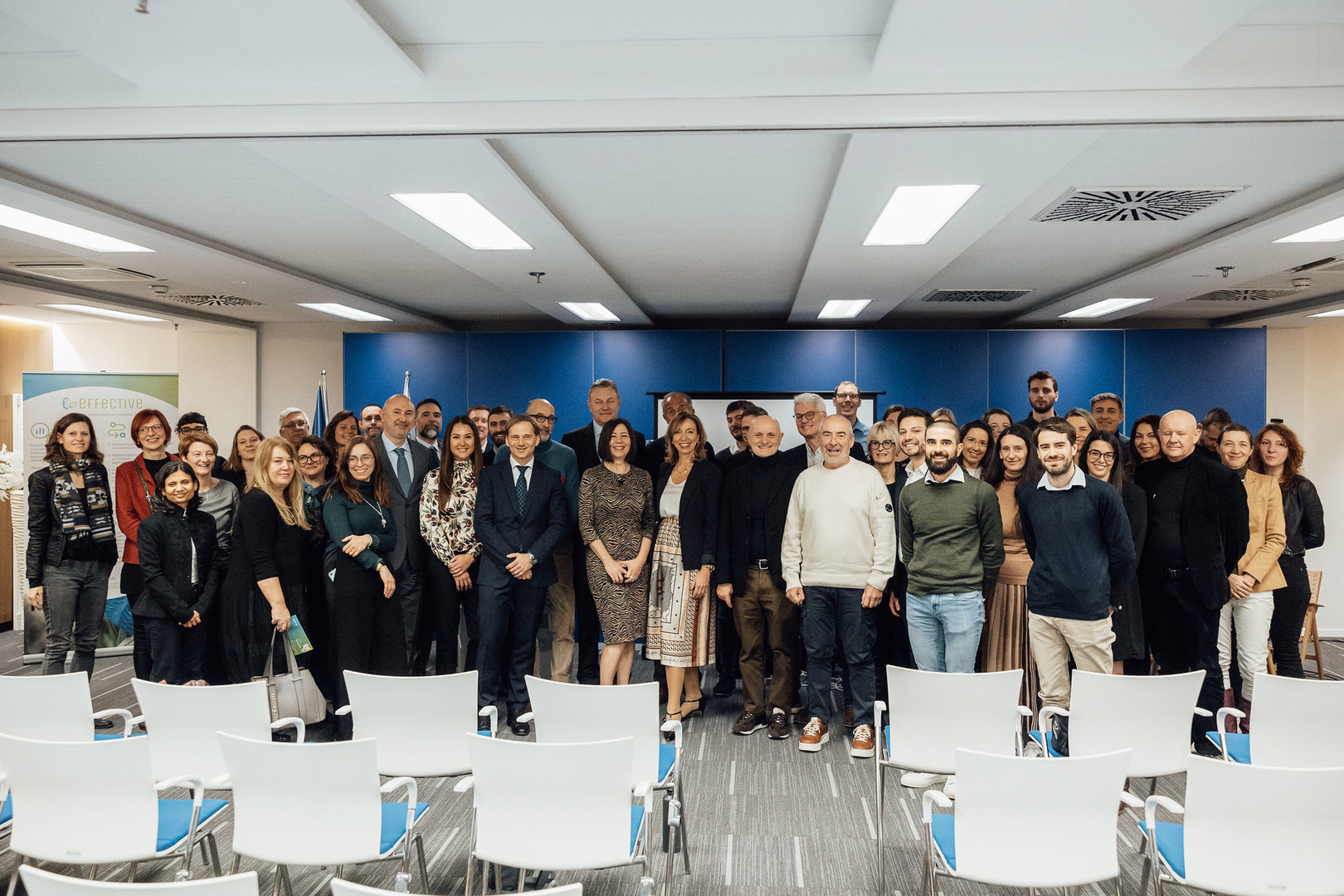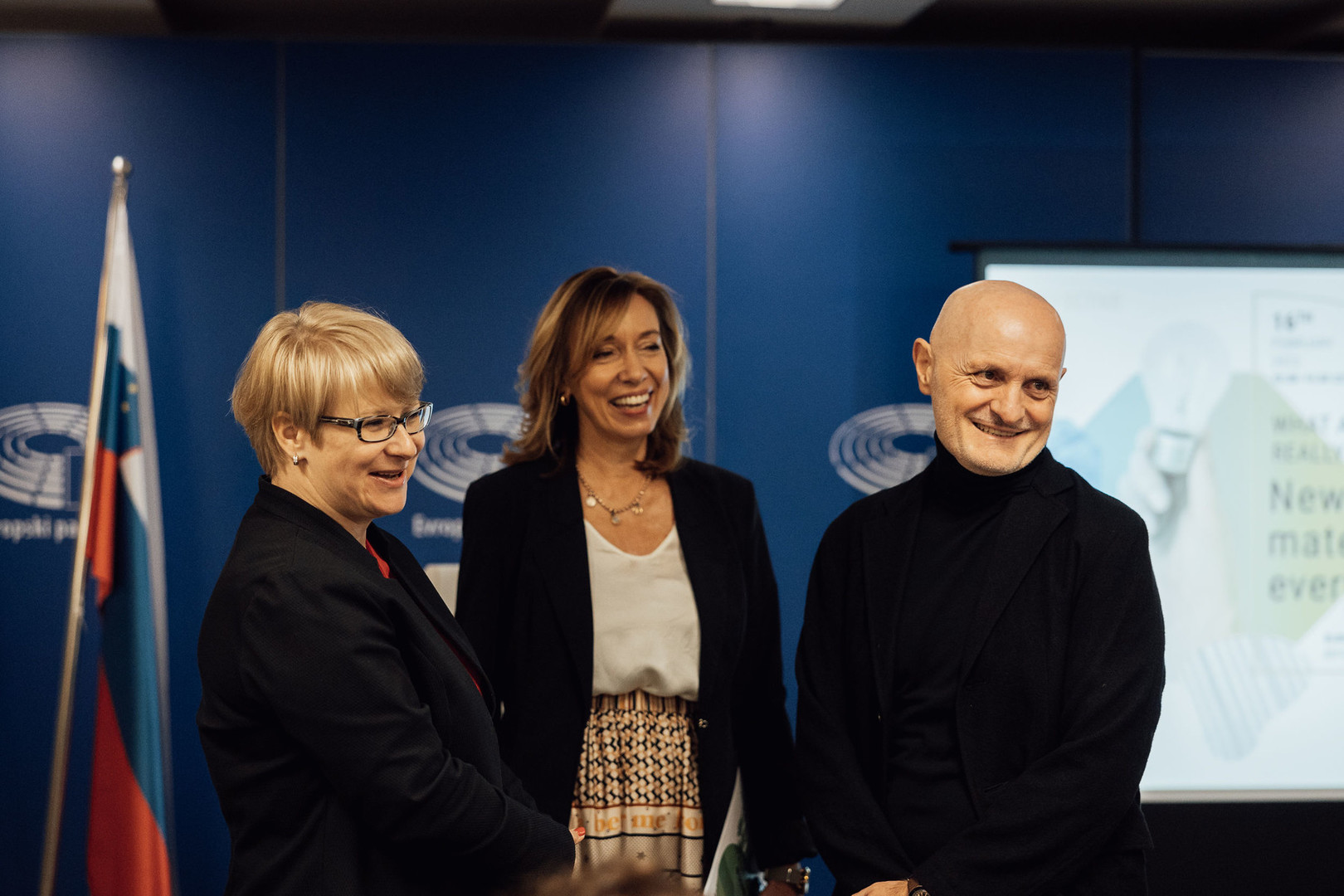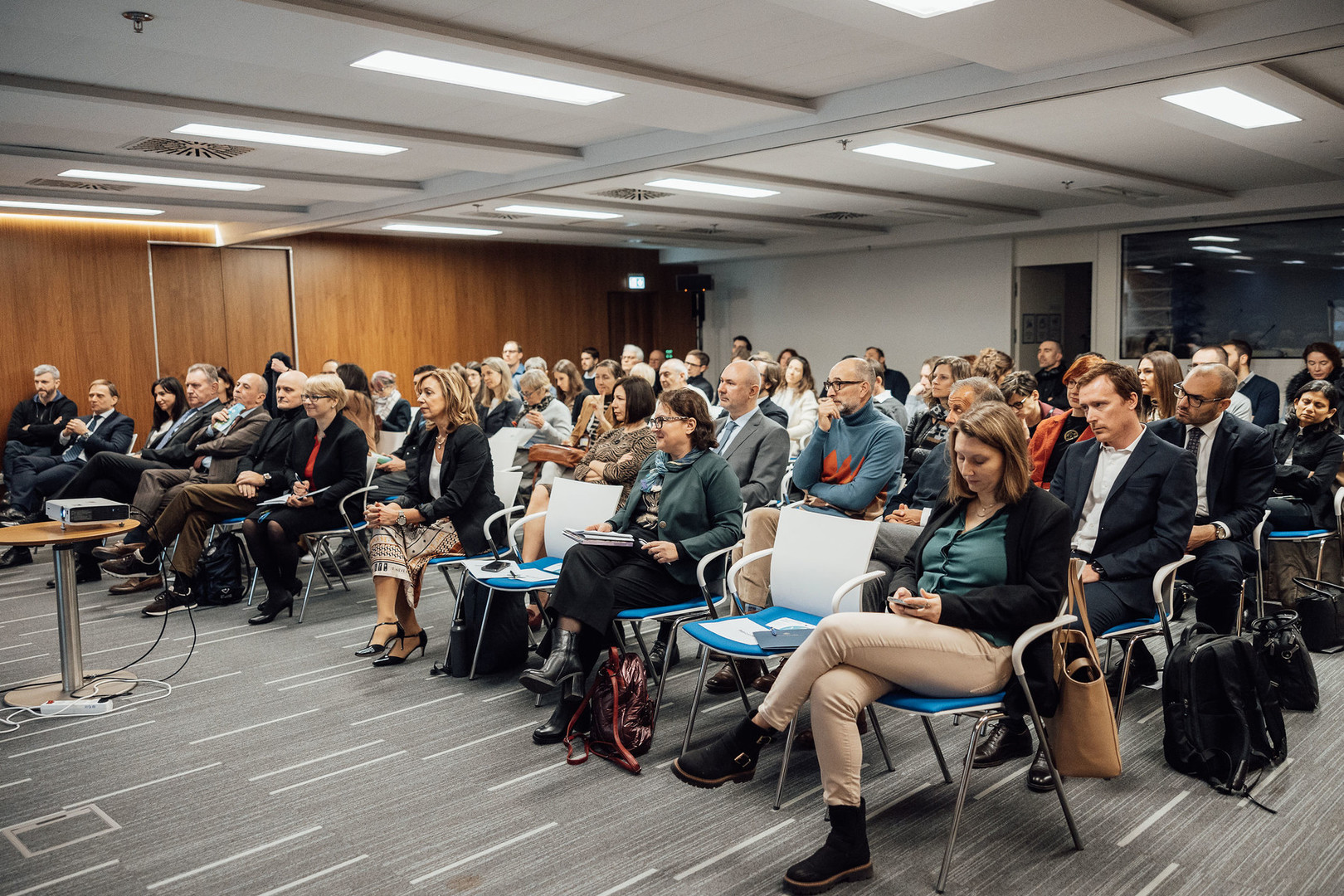The last dance
The final stakeholder event of project EFFECTIVE
On 16 February 2023, at the EU House in Ljubljana, 12 companies from seven European countries presented prototypes of products from new biomaterials, which we might be able to use in our daily lives in the next years. Prototypes of swimwear, bike pants, bio-nylon carpets and food packaging from bio-based polyamides and bio-polyesters were developed by the Effective consortium, which includes Aquafil as the leading partner, Bio-Mi, Sudzucker, LCE, Circe, Carvico, Balsan, VAude, H&M and Novamont, manufactured by H&M, Vaude, Balsan, Carvico and Novamont, and Circular Change as the communication project partner.
The new biomaterials are the result of years of cooperation by a strong international consortium of European organisations and external partner Geno from the USA. The result represents an important innovation based on the principles of the circular and bioeconomy. From here on, opportunities are being opened up for the creation of new value chains in the field of biomaterials for various industries, such as textile, automotive, food, construction, and for various packaging solutions.
The final stakeholder event was dedicated to celebrating innovation in sustainability and circularity. It focused on the presentation of the outcomes of the projects and enabled discussion with local stakeholders that attended on what are circular biobased opportunities to foster these industries in Europe and to foster the results of project EFFECTIVE after the project to co-create a circular biobased future. More than 70 attendees participated in the final event of the project.
The event was organized by the lead communication and dissemination partner Circular Change and moderated by Ms. Ladeja Godina Košir.
The first session included the following interventions:
- Hosts: Jerneja Jug Jerše, EU Commission office Slovenia, & Edi Kraus, Effective project Coordinator
- Key-note speaker: Janez Potočnik, Ph.D., European Commissioner for Environment 2009‒2014, partner at Sistemiq (virtual presence)
- Presentation of project’s result: Mattia Comotto, Aquafil
Representatives of the Effective consortium and EU:
- Mr. Giulio Bonazzi, Chairman and CEO of Aquafil
- Ms. Pilar Llorente, Circular Bio-based Europe JU
The second session took the form of a panel discussion with the following representatives:
- Ministry of Economic Development and Technology - Maruša Vidmar
- Climate-KIC - Bart Stegeman
- SPIRIT Business Slovenia - Tatjana Zajc
- Novamont as the EFFECTIVE project partner - Patrizio Salice
The interlocutors highlighted the value of the European project as EFFECTIVE and said that in the final phase, it is important in particular how the results can be addressed and how it can bring concrete solutions for different industries. They listed some key conditions for such a breakthrough – from support to adequate funding.
Prototypes of swimwear, bike pants, bio-based Nylon 6 and Nylon 6.9 carpets, and films from bio-based polyamides and bio-polyesters have been displayed.
There was a strong engagement from stakeholders which were actively involved through constructive dialogue with the panel representatives. In the networking session, stakeholders had the chance to meet and discuss and create new partnerships.
Next steps: from prototypes to industrial production
At the closing event, the interlocutors highlighted the value of a European project such as Effective and stressed that, in the final phase, it is particularly important how the results can be upgraded and transformed into concrete solutions for different industries. They listed some key conditions for this kind of breakthrough - from the support environment to adequate funding. The innovation has demonstrated that innovative bio-based products can also be obtained from raw materials of plant origin rather than from crude oil. This is a stepping stone to further research into how to make the future of the plastic industry independent of fossil fuels.
Giulio Bonazzi, CEO of the Board of Directors of Aquafil S.p.A. announced the next steps at Aquafil. They will focus on improving the efficiency of bio-based nylon production so that a proper quality of the material is reached. The “End-in-mind” concept as the most important planning phase is crucial in this respect – without the right approach to design, the value chain cannot be circular and sustainable.
Patrizio Salice from Novamont presented the process of making compostable films made of bio-materials from bio-based polyesters, in which waste edible oil was also used as raw material in addition to by-products of the processing of sugar beet. He stressed that they would not stop at prototypes, but would transform the results into the next phase of commercially available biomaterials. He pointed out that such results can only be achieved through the participation of different competent partners in a complex chain of values.
The final event ended with a networking session, enabling stakeholders to explore possibilities for future actions and create new partnerships.


